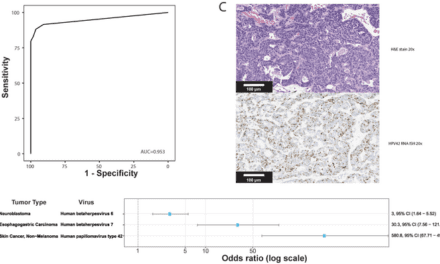Summary: A new study highlights how genetic testing could personalize postoperative pain management by identifying patients’ genetic predispositions to opioid use, offering a potential solution to mitigate risks in the opioid crisis.
Takeaways:
- Personalized Pain Management: Genetic variations in CYP2D6 and COMT genes were linked to higher opioid consumption after surgery, suggesting a path to customized postoperative care.
- Non-Invasive Testing: DNA collection via cheek swab is cost-effective and easy, making genetic testing an accessible tool for tailoring pain management strategies.
- Future Applications: Findings could guide surgeons in developing individualized pain regimens, though further research is needed to solidify the connection between genetics and opioid use.
A new study sheds light on the potential for personalized pain management through genetic testing. With the current opioid crisis, researchers are investigating how a person’s genetic makeup could influence their use of painkillers, particularly opioids, after surgery.
Genetic Testing for the Opioid Crisis
The study looked at 100 patients who had undergone anterior cruciate ligament reconstruction surgery to see if their genetics played a role in how they used opioids to manage pain after the procedure. Researchers focused on genes that affect how the body processes these medications, including CYP3A4, CYP2D6, CYP3A5, OPRM1, and COMT. Participants’ DNA was collected through a simple cheek swab, making the process non-invasive and cost-effective.
The results showed that patients with certain genetic variations in the CYP2D6 and COMT genes consumed more opioid tablets after surgery compared to those without these variations. Specifically, poor metabolizers of CYP2D6 and high metabolizers of COMT used more opioids. However, other genes studied, like CYP3A4 and OPRM1, didn’t appear to affect opioid use in this group.
“This finding has the potential to shape the future of orthopedic care by guiding surgeons to create individualized postoperative pain management plans with unique drug regimens and educational content specific to each patient’s needs,” says lead author Rebecca Cox, FNP, of MedStar Health in Baltimore, MD. Cox added that more research is needed to fully understand the connection between genetics and opioid use.
Further Reading
ASRA Pain Medicine Meeting Presentation
Cox will present “Pharmacogenomics of Opioid Consumption after Anterior Cruciate Ligament Reconstruction,” during the ASRA Pain Medicine 23rd Annual Pain Medicine Meeting at Caesars Palace in Las Vegas, Nevada. The abstract received one of three Resident/Fellow Travel Awards from ASRA Pain Medicine. Coauthors are Austin Collins, Emily Demaio, Rebecca Haley, Greg Darville, Nicole Greene, and John Xerogeanes.





